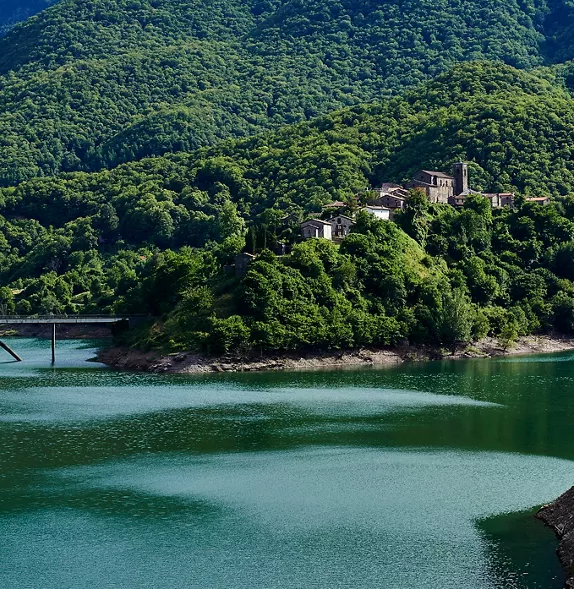



Challenge
Solution
Outcomes
Vera Corbelli, Secretary General, Southern Apennine District Basin Authority
The Apennine mountain range, which extends longitudinally through Italy, holds the water resources for the country’s central and southern regions—the areas that are most susceptible to the consequences of climate change. Increasingly unpredictable and violent thunderstorms are impacting the hydrogeological structure of the soil, while long periods of drought are heightening the risk of potential desertification. Intensive use of the land for agriculture and other purposes also increased exposure to risks of natural disasters.
In the Southern Apennine region, the District Basin Authority governs the physical environment and protects its water resources. It is responsible for monitoring the appropriate use of these resources, forecasting the region’s water supply, and preventing natural disasters and human-made hazards, such as illegal abstraction, discharges, and spills.
The Authority embarked on a project to continuously monitor water quality and availability throughout the territory. The aim was to build a network of remote sensors that could surveil the water system and analyze the data using a variety of technologies, including big data analytics and data science modeling.
With Hitachi Vantara, the Authority is developing a system for sampling data from the field through specific multiparametric sensors, including video, thermographic, lidar, and others. Integrated with a GIS system and meteorological forecasts, that data flows into a big data analytics and data science system that allows officials to inspect water resources throughout the territory and generate actionable insights in real time to mitigate risks and protect the environment.
Vera Corbelli, Secretary General, Southern Apennine District Basin Authority, recalls: “The solution we identified from Hitachi, is proving successful in meeting our needs and expectations—helping us turn the concept of an innovative monitoring system with long-distance sensors into a reality.”
The solution uses Hitachi Lumada Industrial Data Ops to capture data on local water resources at remote sites throughout the region. This data is then blended with enterprise data, GIS and external data such as weather forecasts. Some of the field sensors are cameras and Lumada Video Insights is able to collect, tag, visualize and analyze video data, which is synced with other field and enterprise data in a unified IoT data architecture. Hitachi Content Platform Anywhere syncs the captured video to a central file server, and Hitachi Content Intelligence enriches it with metadata before storing it appropriately in the Authority’s Hitachi Content Platform object storage system. By matching the sensor alerts to the video data and feeding the results into the Authority’s research applications, real-time data modeling, analysis, and monitoring via dashboards and control rooms are made possible.
The solution augments the Authority’s advanced scientific knowledge in forecasting and modeling natural events and resource impairment. Strategies are developed for assessing and managing the risk exposure of the region’s physical-environmental and socio-economic systems. It also makes it possible to conduct experiments with multi-scalar criteria and methods of analysis to estimate and manage risks relating to human hazards such as illegal activity—with positive outcomes for the economy and society.
As a result of this pioneering work, the Authority is able to protect the springs and watercourses better. Using the new dashboard system, officials can react to alarms in an intelligent and coordinated manner and collaborate directly with emergency services, including law enforcement
Vera comments: “IoT analytics is playing a central role for monitoring our water resources, including forecasting and prevention of both natural hazards and malicious anthropic activities, such as dumping industrial waste. I believe it will also have a central role for environmental impact assessments of climate change as part of Italy’s National Recovery and Resilience Plan.”
“Our digital transformation will enable these IoT and big data analytics tools to be adopted for environmental and natural territory monitoring in other contexts, with huge benefits not only for the protection of environmental resources, but also for the social and economic protection of the areas where it is adopted,” Vera concludes.

Industry
Solutions
Services
Hardware